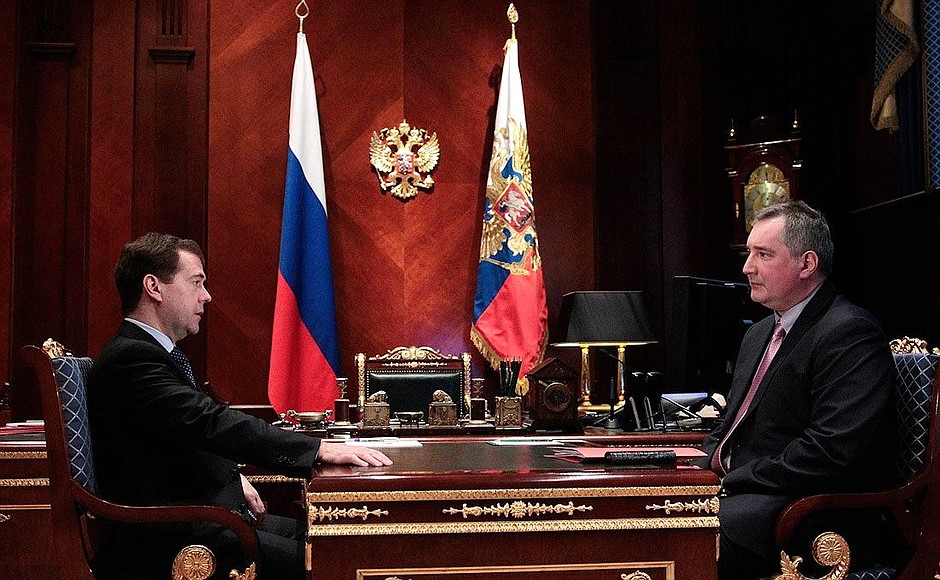
* * *
President of Russia Dmitry Medvedev: Mr Rogozin, when you and I met at the Lisbon Summit, you told me that following your corresponding communication with our colleagues, you will move on to the practical phase of implementing Russian suggestions. At that event, as you recall, I described general approaches to how the Russian Federation can build its relations with NATO in antimissile defence, particularly in the European antimissile shield deployment.
At the same time, our country does not claim to be part of the NATO initiative. That is not something we ever needed, but nevertheless, we must not forget our own responsibility for the developments in this area, and hence we are ready to offer our capabilities which I outlined at the summit. The reaction was generally favourable, although mixed.
Now, I would like you to brief me on how the events are unfolding and whether there are already any agreements on this matter, in terms of approaches to resolving this challenge. After that, I will give you specific instructions for how to proceed, because this issue is exceptionally important.
Like other colleagues, you probably noted that I brought this topic up in my Presidential Address [to the Federal Assembly]. I said that we have two options: either we work out certain principles and agree with NATO on designing a respective integrated system of antimissile defence, or, if we fail to reach agreement, we will subsequently be forced to make several regrettable decisions on the deployment of an offensive nuclear missile group.
How do things stand?
Permanent Representative of Russia To Nato Dmitry Rogozin: Mr President, it is true that the European antimissile project can only come about with the Russian Federation involvement. Without the Russian Federation’s participation, there will be no European antimissile defence; instead, it will be NATO antimissile defence in Europe.
At the moment, we have started an expert analysis of Russia’s initiative on a sectoral approach to European antimissile defence you presented at the Lisbon Summit of the NATO-Russia Council. I think that by June of this year when the defence ministers of the NATO-Russia Council member-states gather together, an interim report on the subject will be drafted and submitted to you.
Overall, your initiative has influential proponents, as well as influential opponents. I would like to list the political and diplomatic measures that could be taken to add further emphasis to promoting your initiative, and to receive the respective instructions.
Dmitry Medvedev: Very well, go ahead.
The only thing I would like to say in concluding the public part of this conversation is as follows: our partners must understand that the reason for our attention to the subject is not our wish to join NATO in playing with modern toys, but our intention to ensure proper protection for Russia. That is my responsibility as President, and the responsibility of other state officials, which therefore is to be taken seriously.
We are awaiting a straightforward and explicit answer from our NATO partners about what they perceive Russia’s place to be. In any event, we will find an adequate response to the existing problem, whether with or without NATO.
<…>